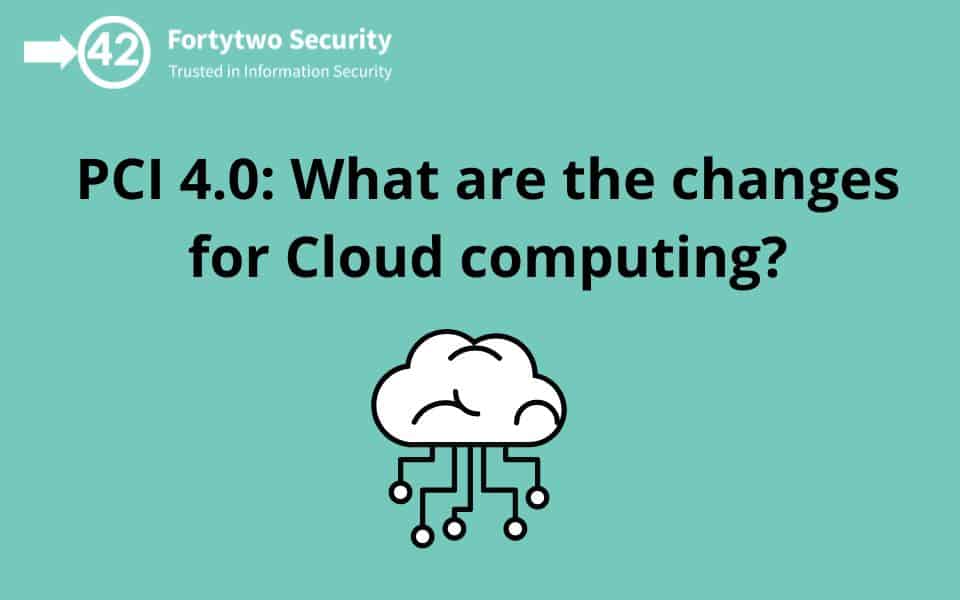Cloud computing has become an increasingly popular technology in recent years, and it has been evolving rapidly. With the release of PCI 4.0, the Payment Card Industry Data Security Standard (PCI DSS) has been updated to reflect the changing landscape of cloud computing. The most significant change in PCI 4.0 is the more comprehensive approach to cloud security by adding new cloud technology requirements.
New guidance for Cloud security
This new version of the standard has been designed to provide more flexibility and adaptability by basing its controls on a defined security objective. Allowing greater understanding and correct use of cloud services.
PCI 4.0 does not have a new security model specifically for cloud environments. The PCI 4.0 standard does, however, provide new guidance on the use of cloud services and cloud-based technologies. This guidance is designed to help organizations that use cloud services to secure their payment systems in compliance with the PCI DSS.
How can you ensure security in the cloud with PCI DSSv4.0?
With the latest changes, the new version of PCI 4.0 can ensure security in the cloud. The standard covers a wide range of topics, including cloud security architecture, cloud security operations, and cloud security monitoring. It requires organizations to implement a few security controls, such as encryption, authentication, and access control.
To assure that Cloud Security meets the requirements organizations need to have a comprehensive incident response plan in place. This plan should include steps for responding to security incidents, such as identifying the source of the incident, containing the incident, and restoring the affected systems and services.
In addition, PCI 4.0 also requires organizations to ensure that their cloud-based systems are regularly tested for vulnerabilities. This includes testing for common vulnerabilities such as SQL injection, cross-site scripting, and other security issues. Organizations must also ensure that their cloud-based systems are regularly patched and updated to protect against the latest threats.
This new PCI DSS version is an important step forward for organizations looking to ensure the security of their cloud-based systems and services. By adhering to the program’s security controls and processes, organizations can help protect their systems and services from malicious actors.
Finally, PCI 4.0 also includes several new requirements for cloud service implementation. These requirements include the implementation of secure access control, the use of encryption, and the implementation of a secure development lifecycle.
To sum up, you must consider the following requirements:
- ensure that all customer data is strongly encrypted and stored securely.
And, have a documented process for:
- responding to security incidents.
- patching and updating systems.
- monitoring and logging customer data access by automation tools.
- managing account data access.
- validating account data integrity.
- securely disposing of data.
- securely transferring data.
- securely backing up account data.
Conclusion
Overall, the changes in PCI 4.0 are designed to provide organizations with more flexibility and security when it comes to cloud computing. By implementing these new requirements, organizations can ensure that their cloud-based services are secure and compliant with the latest standards.
